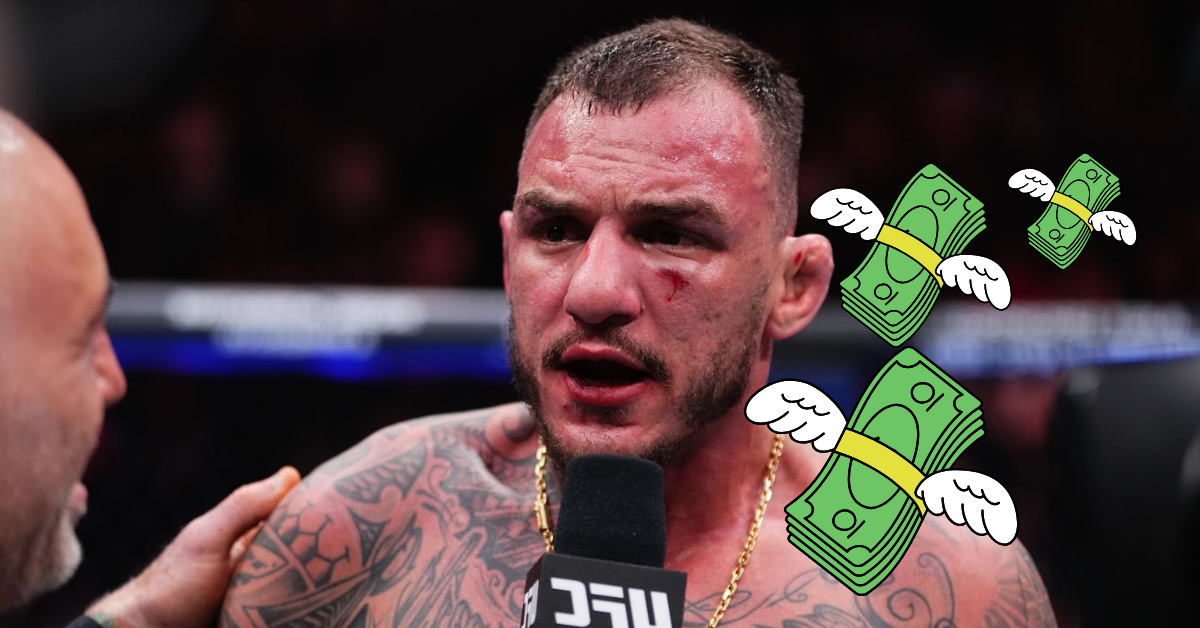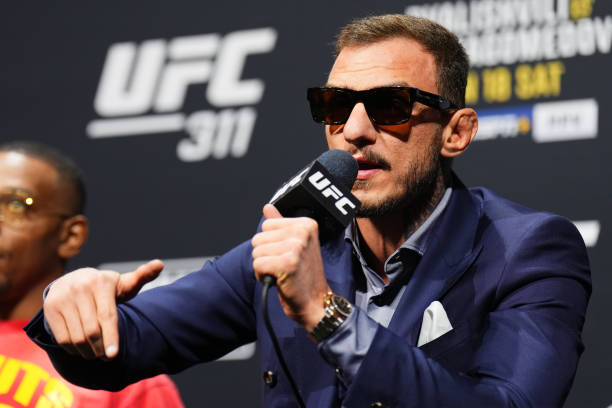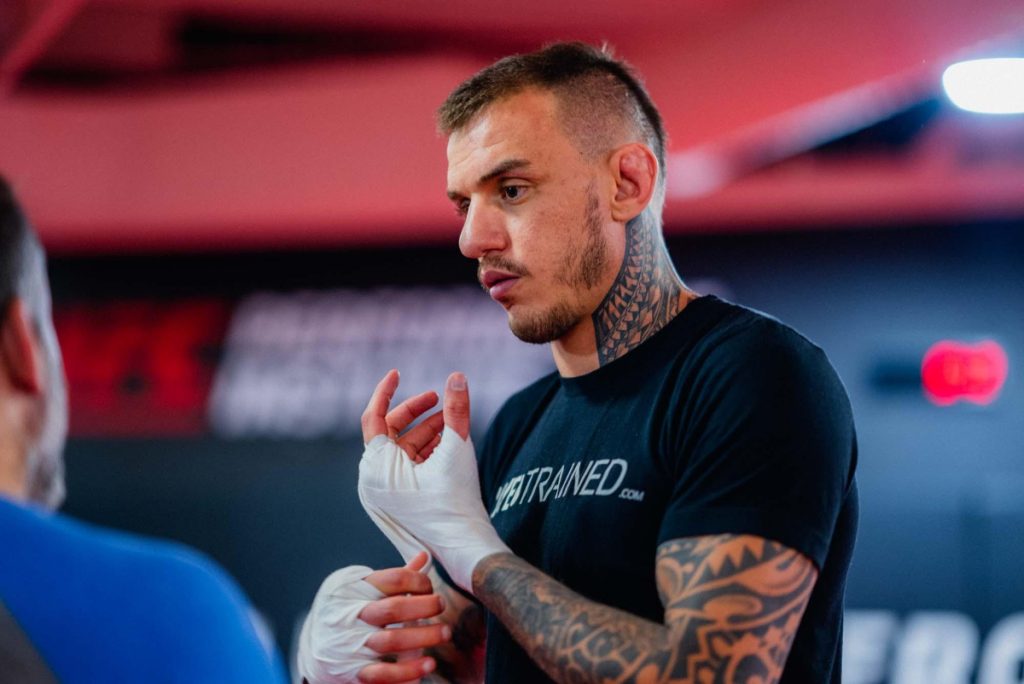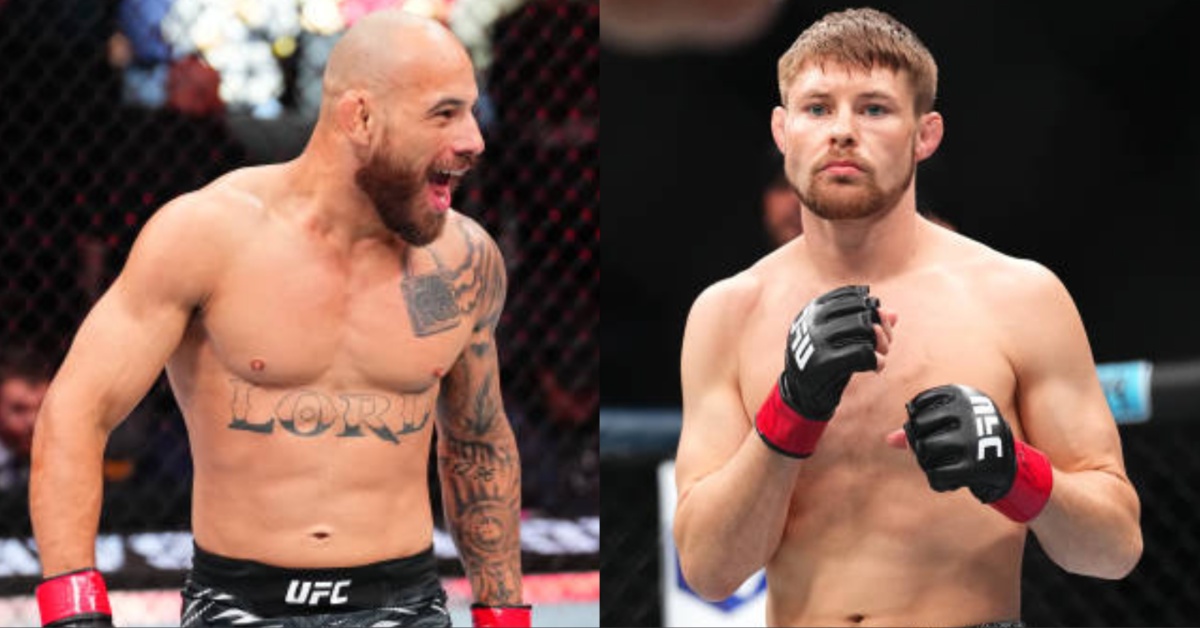
UFC athlete Renato Moicano recently explained his decision to turn down a significant financial settlement from the Le vs. Zuffa lawsuit, an antitrust case that has impacted hundreds of MMA athletes. Speaking on his “Show Me The Money” podcast, Moicano described the process of declining approximately $200,000.
Renato “Money” Moicano Declines Money
The Le vs. Zuffa lawsuit originated from claims by former fighters, including Cung Le, alleging that Zuffa (the UFC’s parent company) engaged in anti-competitive practices and suppressed athlete wages. The case led to a settlement offer that provided payments to fighters who had competed in the organization during the relevant period. For many, the windfall was substantial. Moicano was among the small minority – reportedly about three percent – who refused the payout.
Watch Renato “Money” Moicano explain why he turned down the payout on his “Show Me The Money” podcast:
Renato Moicano described the experience in plain terms. “They sent you money and you didn’t accept it?” his interviewer asked. Moicano replied, “Yeah. I just had to put my name over there, but I didn’t.” He emphasized that while the acceptance of these funds required only a signature, he chose not to participate: “I did not sign it. I did not sign.”
Asked about the amount, Moicano clarified, “What kind of money are we talking? This is, like, 200k per person. Depends on how many fights you have.”
Moicano made it clear his decision was a matter of principle rather than financial calculus. “All the fighters that got money… no morals,” he said, contrasting his own stance with those who accepted the settlement. “It was only three percent of the fighters refused the money,” Moicano stated, highlighting the rarity of his choice.
He outlined his reasoning, drawing on personal values about contract fairness and honoring prior agreements. “The lawsuit would happen without me, without my consent, you know. But they went through, saying that UFC did not pay the fighters fair enough. But… I remember my first fight in UFC was $8,800 to fight. And then what they’re saying is, ‘Hey, you know that $8,800? That was wrong, they took advantage of you.’ It’s the same thing… you have to do your part of the deal, you know. You cannot take advantage of people… You have to honor your part on the contract.”
“But this is like, let’s say, you get a girl today and you sleep with her, and, like, two years later she says, ‘Hey, the guy r-ped me.’ You know, that’s what it is. You already agreed to it. I agree with – because I remember my first fight in UFC was $8,800 to fight. And then what they’re saying is, ‘Hey, you know that $8,800? That was wrong, they took advantage of you.’ It’s the same thing.”

The podcast conversation revealed that Moicano faced pressure from legal representatives and other fighters to accept the settlement. Yet, he insisted, “If you didn’t sign, they’re gonna split your money with the other fighters. You’re not gonna get the money back… I don’t want to be a part of this. Take the money for everyone else.”
Asked whether he regretted missing out on the money, Moicano responded, “It’s a lot of money, but we’re walking over here, right? In 10 years, I believe this podcast is going to be great, and I will have this to tell, you know. Hey, one day, 10 years ago, I could have taken this money.” He concluded, “It’s just money, bro. It’s a piece of paper.”

Moicano remains one of only a handful of fighters publicly known to have declined compensation from the suit. He notes that among roughly 700 eligible fighters, just “three or four did not accept, but they don’t say the names.”

 Renato Moicano reveals he turned down up to $200,000 from UFC’s Lawsuit settlement payout.
Renato Moicano reveals he turned down up to $200,000 from UFC’s Lawsuit settlement payout.
